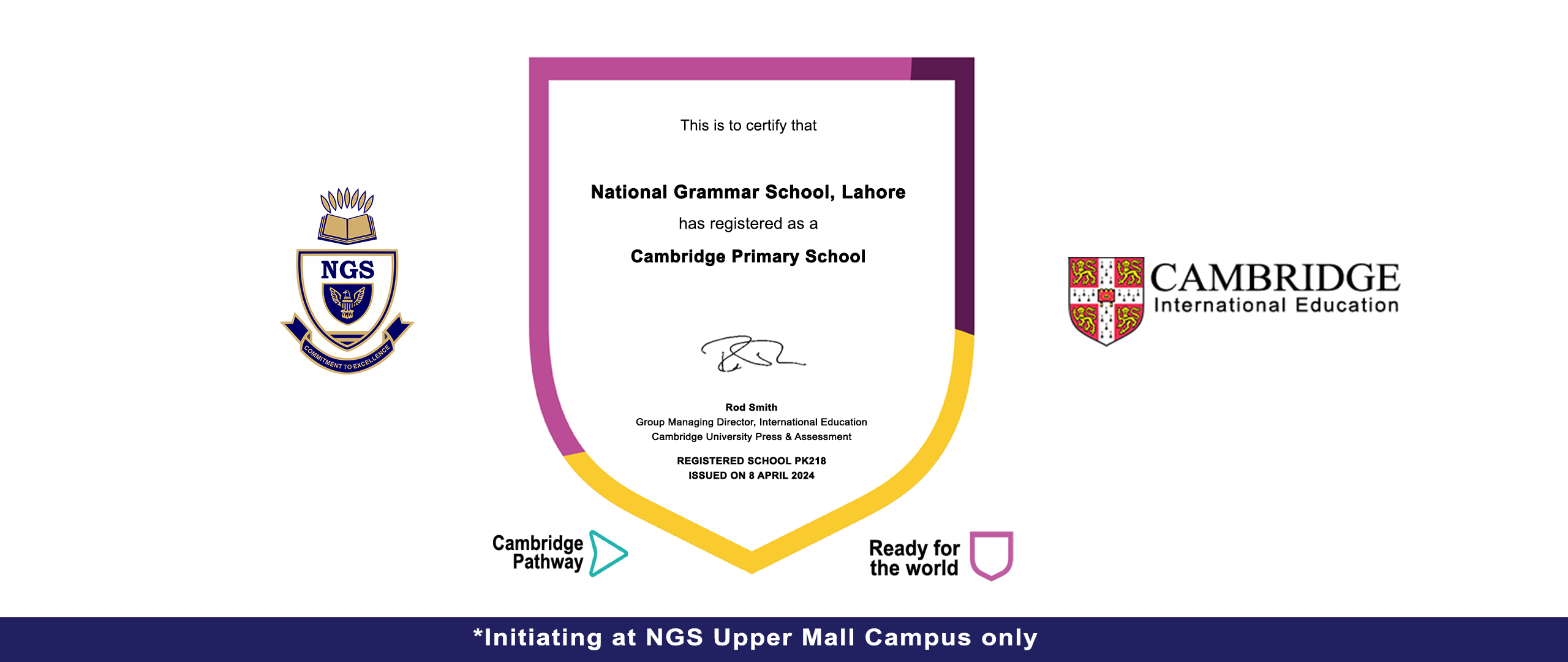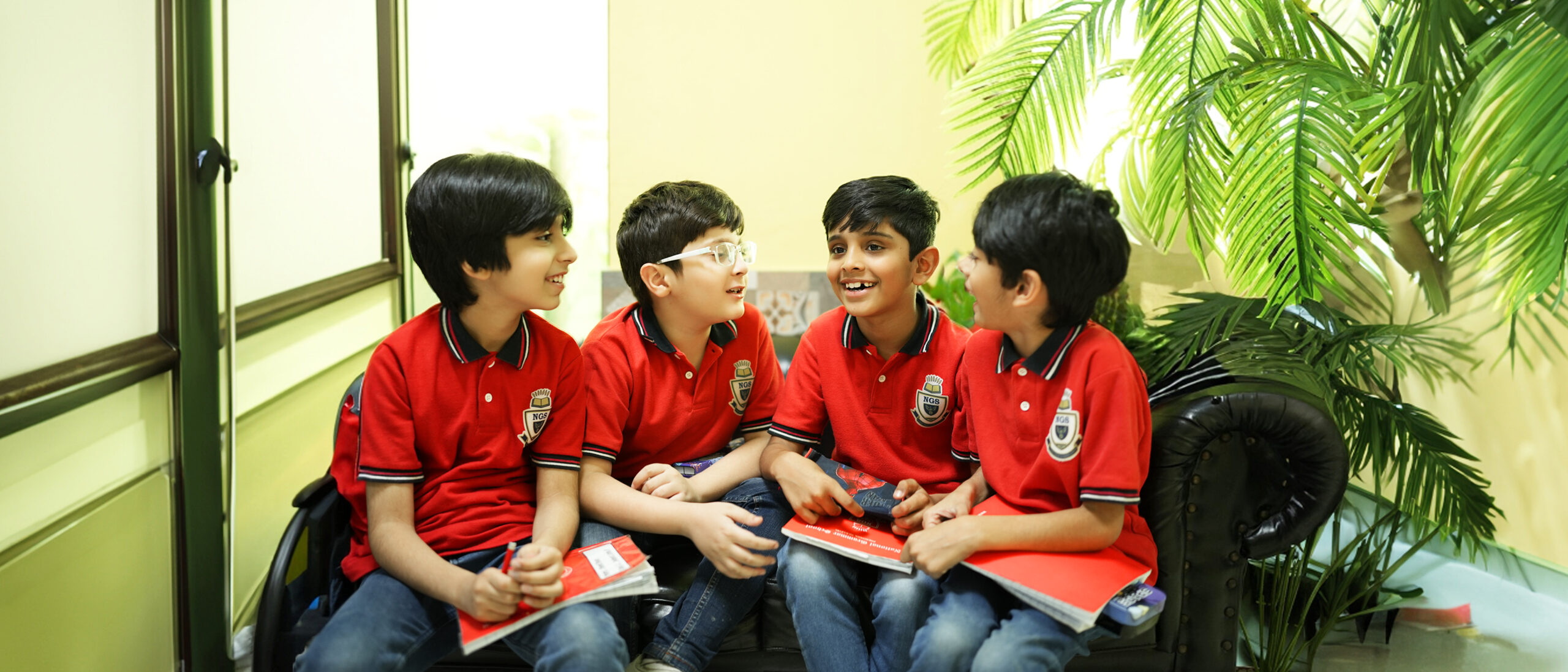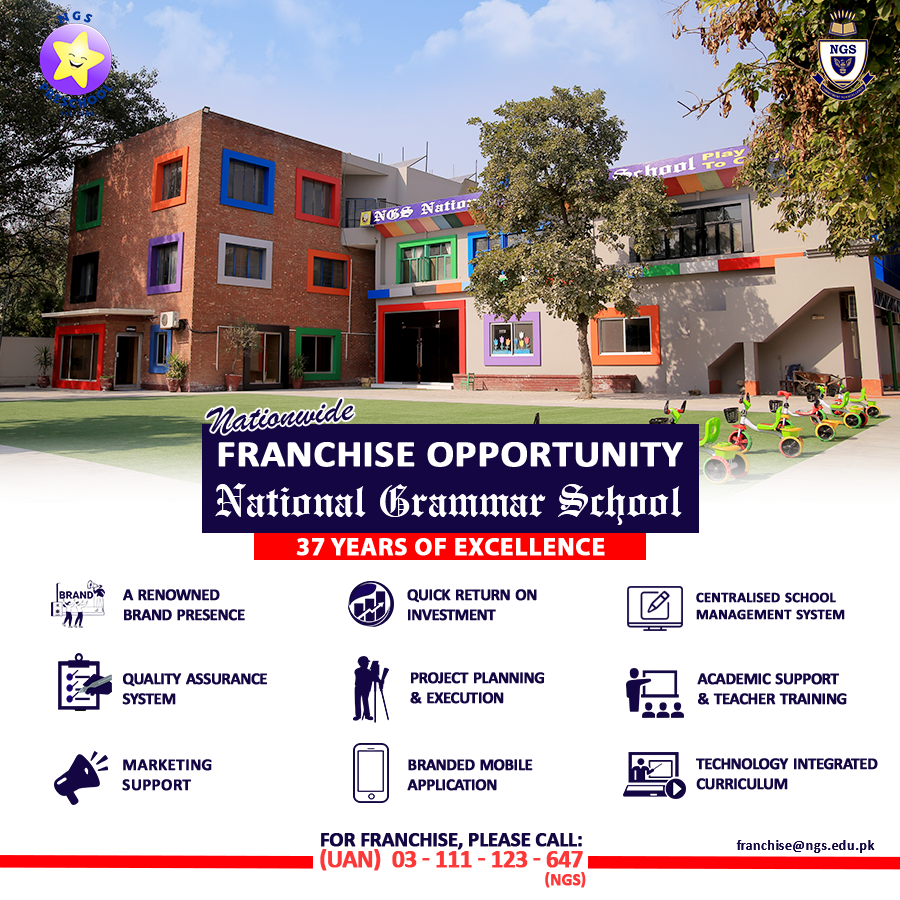HomeNGS Junior School | Building Strong Foundations
NGS Junior School | Building Strong Foundations
The NGS Junior school (classes I – V)
Located at our Mall Campus, our Junior Section offers a comprehensive co-educational program tailored
for young learners. Our meticulously crafted curriculum and diverse co-curricular activities are
meticulously designed to cater to every facet of a child's development.
At NGS, we introduce the concept of the "Learning Pentagon" – a holistic framework comprising
academic, physical, social, spiritual, and aesthetic development activities. This multifaceted approach
ensures that students receive a well-rounded education that nurtures their minds, bodies, and spirits,
fostering growth and excellence in every aspect of their lives.
Contact Information
Senior School
Co-Education, Grade 6 to A-Level22, D-1 Gulberg III Lahore Pakistan
042-35756514 - 042-35756515




